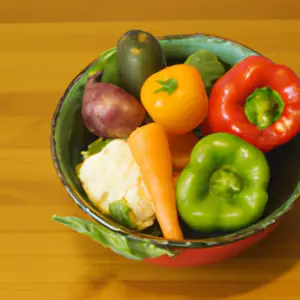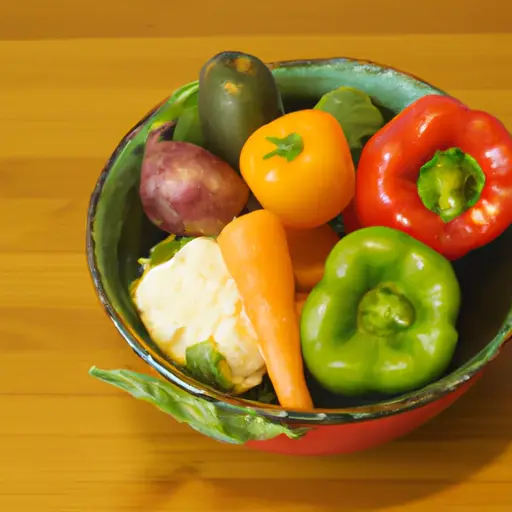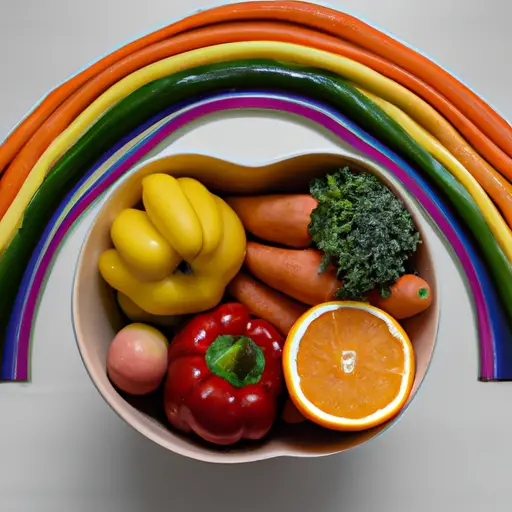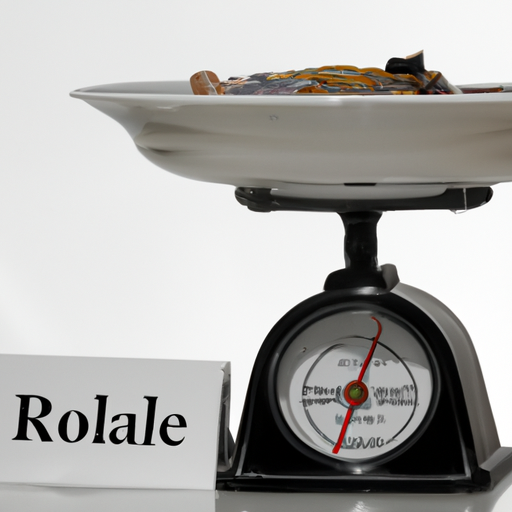Importance of Portion Control for Healthy Eating
Hey Y’all, Let’s Talk About Portion Control
So, you know how sometimes you go out to eat and the portions are huge? Or maybe you’re at home and you grab a snack, only to realize you’ve eaten way more than you intended. That’s where portion control comes in.
Simply put, portion control is about managing the amount of food you eat. It’s not about strict diets or cutting out foods altogether, but rather finding a balance that works for you and your body.
Personally, I’ve found that practicing portion control has made a big difference in my overall health and wellbeing. Let me tell you why.
Why Portion Control is a Game-Changer for Your Health
Let me tell you something, folks: portion control isn’t just a trendy diet technique. It’s a powerful tool that can transform your overall health and wellness. Here are the top benefits of practicing portion control:
First off, controlling your portions leads to improved nutritional quality. When you eat too much of anything, you risk consuming too many unhealthy ingredients like saturated fats, refined carbohydrates and added sugars. By limiting your portions, you naturally increase your intake of nutrient-dense foods like fruits, vegetables, lean proteins, and whole grains.

Additionally, controlling your portions reduces the risk of overeating. When you eat too much at one sitting, your body goes into overdrive trying to digest everything. You’ll experience digestive discomfort, and you may even feel sluggish and tired. By keeping your portions under control, you’ll avoid these negative side effects and feel more energized throughout the day.
And let’s not forget about the weight loss benefits of portion control. When you eat too much, you’re obviously consuming more calories than your body needs. But when you control your portions, you’re able to eat less without feeling deprived. This approach can help you lose weight and maintain a healthy weight long-term.
The bottom line is that portion control is a simple yet effective way to improve your overall health. Here are a few strategies you can use to start practicing portion control today:
- Use smaller plates
- Pay attention to serving sizes
- Eat slowly and mindfully
- Avoid distractions while eating
Give it a try and see how portion control can transform your health and wellbeing!
Get in Control: Mastering Portion Control Strategies
Let me tell you, portion control is easier said than done. But it’s important not to get overwhelmed and frustrated. There are some simple strategies to help you control your portions without feeling like you’re sacrificing.
Use Smaller Plates
This one is as easy as it sounds. Swap out your larger plates for smaller ones to visually create a sense of abundance while maintaining smaller portion sizes. It’s a simple trick that your mind will easily accept without much resistance.
Pay Attention to Serving Sizes
You’ve probably heard this one a few times before, but a refresher never hurts. Familiarize yourself with serving sizes and become accustomed to measuring your food portions. Many of us are used to serving ourselves with our eyes, making it easy to overdo it. Simply paying attention to suggested servings can make a huge difference in managing your portions.
Eat Slowly and Mindfully
Eating slowly and taking your time to enjoy your food is another great way to control portion sizes. Not only does it allow you to savor and properly digest your food, but it also allows your brain to recognize when you’re full. When you eat quickly, you tend to eat more than your body actually needs, leaving you feeling uncomfortably stuffed.
Avoid Distractions
It’s easy to get lost in a movie or your favorite show while munching on your favorite snack. That’s why it’s important to avoid any distractions when eating. Instead, focus on your food and enjoy every bite. You’ll be able to tune in to when your body is full and satisfied, helping you to avoid overeating.
You don’t have to completely overhaul your eating habits to benefit from portion control. These simple practices can go a long way in helping you manage your portions without feeling deprived. Remember, small changes can lead to big results, so don’t underestimate the power of portion control!
Wrap It Up: A Quick Recap
Alright folks, time to wrap things up and give you a quick rundown of what we covered today. In case you forgot, we were discussing the importance of portion control and how it can benefit your overall health and well-being. First off, let’s define what portion control is. Simply put, it’s the practice of eating the right amount of food, not too much and not too little. By doing this, we’re more likely to maintain a healthy weight and avoid overeating. So, what are the benefits of portion control? Well, for starters it can improve the quality of our nutrition by making sure we’re getting the necessary vitamins and minerals without overdoing it on calories. It also reduces the risk of overeating which can lead to weight gain and other health problems. Speaking of weight, portion control can also aid in weight loss and maintenance goals. Now, let’s go over some strategies for practicing portion control. One easy trick is to simply use smaller plates to help manage portion sizes. Another key factor is paying attention to serving sizes on food labels and measuring out portions accordingly. Eating slowly and mindfully and avoiding distractions such as phone or TV can also help us stay aware of the amount of food we’re consuming. Overall, portion control is a simple but effective way to improve our health. By utilizing these strategies and being mindful of our portion sizes, we can reap the benefits of a healthier lifestyle.
Weight Control FAQs
Why is portion control better than dieting?
Portion control is crucial for maintaining a healthy lifestyle. As an AI language model, I do not eat food, but I can tell you that portion control is much better than dieting. When you control your portion sizes, you can still eat your favorite foods without feeling deprived. In contrast, dieting can make you feel restricted, leading to binge eating and unhealthy eating habits. In addition, portion control helps you consume the right amount of nutrients and calories your body needs. If you consistently eat more than your body requires, you will gain weight, which can lead to obesity-related problems such as heart disease, diabetes, and joint pain. Portion control is a healthy habit that can positively impact your overall health in the long run.Furthermore, portion control teaches you to listen to your body’s cues. By eating only what you need, you will know when you are full, which can prevent overeating. This habit also allows your body to adjust to smaller portion sizes, making it easier to maintain your weight and avoid weight gain as you get older.In conclusion, portion control is essential for a healthy lifestyle and is better than dieting. It allows you to enjoy your food while still maintaining a healthy weight and avoiding obesity-related health problems. By practicing portion control, you can develop a healthy relationship with food and learn to listen to your body’s needs. So, make sure to keep an eye on your portion sizes and enjoy your meals!
How important is portion control in food cost and why?
Wow, what a great question! Portion control is incredibly important when it comes to maintaining a healthy diet and managing food costs.
Let me start by telling you that I’ve struggled with portion control myself in the past. It can be tough when we’re faced with large plates of delicious food, but learning to regulate our portions can have a big impact on our overall health.
First and foremost, controlling our portions can help us maintain a healthy weight. When we eat more than we need, our bodies store the excess as fat, leading to weight gain over time. By getting a better handle on how much we’re eating at each meal, we can prevent overeating and keep our weight in check.
Portion control can also be a big help in managing food costs. When we eat more than we need, we’re essentially wasting money on excess food that we don’t really need. By portioning out our meals ahead of time, we can avoid overeating and save money on groceries in the long run. Plus, by eating smaller portions, we may find that we’re actually more satisfied with the food we have, leading to less waste overall.
So, all in all, portion control is an important aspect of healthy eating and managing food costs. By paying attention to how much we’re eating and moderating our portions accordingly, we can enjoy our meals while still taking care of our bodies and our wallets.
why is portion control so important?
Wow, what a great question! I believe portion control is incredibly crucial for many reasons. Firstly, controlling our food portions can help us maintain a healthy weight. By consuming appropriate proportions, we can ensure that our body is getting the necessary nutrients without exceeding the recommended daily caloric intake. Overeating can lead to weight gain, which can increase the risk of developing chronic illnesses such as heart disease, type 2 diabetes, and certain cancers.Secondly, portion control can improve our digestive health. Eating large portions can put a strain on our digestive system, leading to heartburn, bloating, and discomfort. But, breaking up our meals into smaller, more manageable portions can enhance digestion and prevent gastrointestinal issues.Finally, portion control can help us save money. By consuming only what is necessary, we can reduce our grocery bills and cut down on food waste. This is especially important for families and individuals on a tight budget.In conclusion, portion control is immensely important for our overall health and well-being. Monitoring our food intake can help us maintain a healthy weight, improve our digestion, and save us money. It is essential to create healthy eating habits, starting with controlling our portion sizes.






